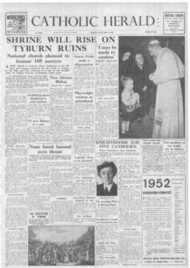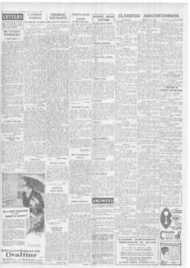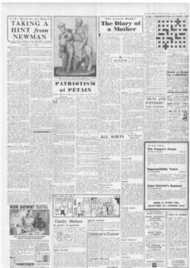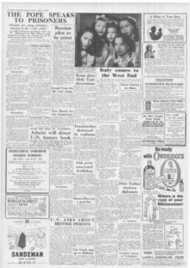Page 4, 4th January 1952
Page 4
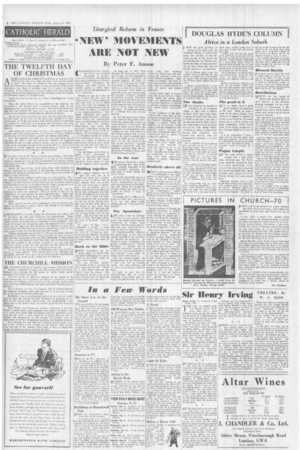
Report an error
Noticed an error on this page?If you've noticed an error in this article please click here to report it.
Tags
Share
Related articles
Critics And Actors
Sir Henry Irving Sir. - Surely Sir Henry Irving Did Not Die
Thane Needs More Scotch
Head Unifier Heels
Personality : Denys Blakelock Who Takes....
Sir Henry Irving
THEATRE: By W. J. IGOE Henry Irving, by Laurence Irving (Faber, 50s.).
HE night was bitterly cold. The Theatre Royal, Bradford, filled with a good audience come to see the reigning monarch of English-speaking drama give the farewell performance of Tennyson's Becket.
The house was calm, but hackstage the company worried. " The Chief " was unwell; oddly, he played the Becket off-key. The great actor varied gestures which, once a role had been created, was unthinkable. Each performance should be precisely true. Tonight was different.
The tragedy was ending, and Becket's second last line should have been: "God's will be done." Sir Henry substituted the words: "God is my Judge," and concluded, clearly and resonantly: "Into thy hands, 0 Lord, into thy hands." A few minutes after, Irving died in the manager's office.
tr it ended the life of a great man who made the art he followed honoured in the land, who raised the status of his fellow-players from "rogues and vagabonds."
John Broadribb was the son of a penurious salesman. In the dingy pantheon at Westminster, where mediocrites crowd the dust of greatness, no Englishman has better title to a place. For in a way, he made the English theatre. His star faded momentarily, but long before the death of Shaw, a savage and biased critic, it rose again; the splendour of the art of acting was illuminated by this dedicated player. His successors thrive upon the foundations he laid down.
fr
OF few great figures can it be said with truth that more consciously and artistically they created themselves from the body and soul God gives each man.
1 he mind Irving brought to the theatre was clean; like the elder Kean he found all dramatic material fresh under his gaze, unwarped by family custom which, in the Kembles. for example, had become identified with tradition. The puritanism of the mother who reluctantly permitted the first visit to the theatre, when he was twelve, to see Hamlet played by Phelps, too, had its effect; his choice of a profession —his escape from the City—had to be justified.
Although not a practising member of any church, there never was a more finicky moralist, a man more aware of the presence of God; it was easier in those days to be an undenominational Christian. Humanly speaking, no one practised the natural virtues more rigorously.
* *
DURING the first decade he must -" have suffered agony, vet the iron discipline and dignity that prompted him—for the sake of the profession—first to refuse and then accept the accolade was forged in those days.
Even at twenty-four, he already had that command of himself and the ordinary decencies that must exist between actor and audience when he reproved the organised mob that out of irresponsible bigotry harracked him in the Queen's Theatre, Dublin, present lodging of the Abbey Company. He had taken the place of a favourite, dismissed for insubordination. A gang of hoodlums was recruited to savage the performance of the young player " ignorant of local theatre politics."
When their behaviour became unbearable the actor quietly stopped the performance and addressed the house: "Gentlemen, I should be very glad if you will tell me the reason of this disapprobation? . . . I came among you as an entire stranger — have endeavoured to please you and really have been treated by some with anything but courtesy."
At this point, the larger part of the Irish audience asserted itself and the barbarism of the organised hooligans was drowned in cheers for the actor. He finished the play.
Twelve years later at the Lyceum, Irving opened with Hamlet. For this chapter describing the performances alone, copies of Mr. Laurence Irving's book should be placed upon the shelves of every school library in the country. The examination of Sir Henry's portrayal of the role illuminates the intelligence of a supreme tragic actor, who understood tragedy, Hamlet, and his audience was not afraid to confound the prejudices of his masters, the public. But, then, it was a civilised audience, worthy of him. It has its place in a magnificent book.
blog comments powered by Disqus


